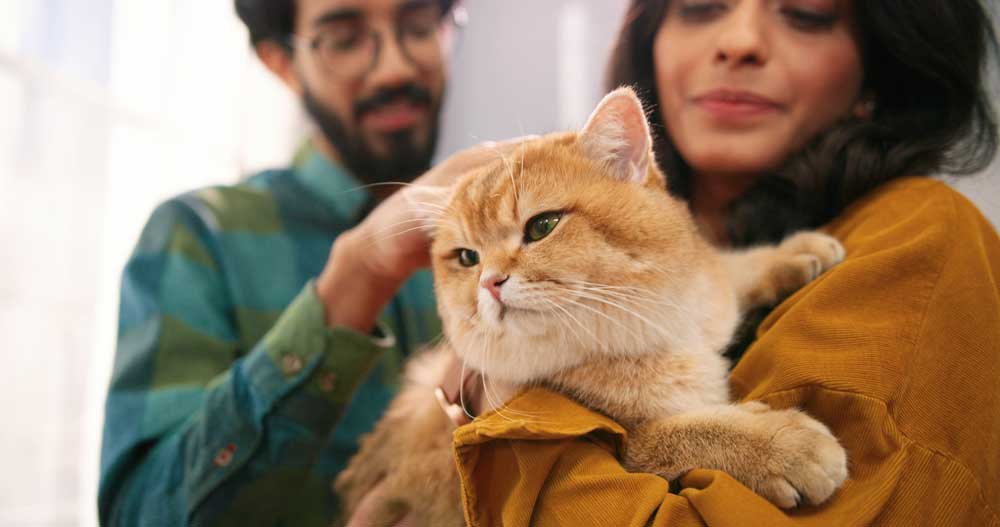Let’s face it, pet parents adore their furry babies just as much as their human ones – sometimes even more! But it isn’t always possible to take our little canines and felines along wherever we go. Running an errand at the mall? It’s unlikely they’ll be allowed. Have to travel for work? No chance the logistics will work in your favour. Unless you’re a stay-at-home pet parent who never travels, chances are you’ll have to leave your little babies alone at some point in time. Separation anxiety is a very natural and real feeling that both pets and their parents experience during these periods. Leaving our little ones alone can be hard on them, and on us. Using these few simple steps though, you can ensure that separation anxiety is well-managed and you don’t feel too guilty!
Dr Radhika Surrana, a veterinarian with the Blue Cross has some pointers for managing separation anxiety when you step outside for short periods of time. ‘Although cats also go through separation anxiety, they are more resilient than dogs who are demonstrative and can work themselves up into a worried frenzy. Don’t suddenly leave your pet alone and disappear. Pre-condition them by keeping your absences short at first. Start with just ten minutes to begin with and work your way up every day by adding five extra minutes to the previous day. Eventually, if your pet has adjusted over a few months, you can leave them alone for up to four hours. However, it is not advisable to leave them alone beyond eight hours at a stretch. Also, pick up your handbag and put on your shoes to stay at home sometimes. Let them not assume that these are signs of a prolonged absence and get worked up. When you leave the house, be calm and quiet. Don’t make a big deal out of leaving, but don’t ignore your pet either. Keep it short and sweet.’

Dr Surrana also advices you to leave someone with your pet at home even if you cannot be there. ‘It can be a parent, a friend, or trusted hired help. As long as there’s someone around, your pet is less likely to feel anxious and abandoned. If you have a dog, make sure they’re well-exercised and go for walks and outings so that they work off any excess energy. Finally, if your pet is destructive and makes a mess while you’re away, don’t scold or punish them. This is probably their way of releasing any pent-up fear and anxiety.’
She also says pet parents can consider crate training an important part of a pet’s journey towards feeling secure and independent since they look at the crate as their second home and a space that is uniquely their own. ‘Develop a structured routine, rather than leaving pets alone at random times. This way they know what to expect, and are less likely to whine, cry, or yelp.’
It might be a good idea to switch on the television or radio while you’re away so that pets feel like there’s some activity and noise at home. Ensure they have comfortable bedding, enough ventilation and ideal temperature, enough snacks and water around them, and some toys to keep them entertained if they’re bored.
If you’re a pet parent who travels out of town, it is natural to experience feelings of guilt and worry. Remember, you cannot put your life on hold. At the same time, it is important to ensure that your pet is well looked after. Don’t put yourself in a situation where you have to fret. Plan for safe and secure arrangements well in advance and keep backups handy.
‘Leave your pet with someone you know and your pet is also familiar with,’ says dog owner Kanthi Subramaniam, who has a job in sales that requires frequent travel. ‘Ideally, find someone who looks after them in their own surroundings. I’m lucky that my mother lives in the same city, and is able to lock her home in a jiffy and come to my place to house-sit and dog-sit. I understand that not everyone can make these arrangements. If you have to use a kennel or pet hotel, keep your pet there for a couple of days before you travel. Keep visiting them frequently, so that they know you’re around and feel like it is a safe space. You’ll also have a sense of how the establishment looks after your pet. Always keep something that smells like you and like home with them, such as a blanket. Ideally, ask for a pet camera to be installed that you have access to. Use a tracking device on your pet, so that in case of any unfortunate mishaps, you’ll be able to find out where they are.’
Through all of this, keep calm around your pet. Remind yourself that you’re a good pet parent, and are doing your very best under the circumstances!